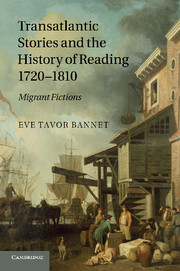Afterword
Published online by Cambridge University Press: 05 July 2011
Summary
There is no single, all-encompassing meta-narrative here; nor do I think there should be until much more work has been done. But some intriguing reflections do emerge from these popular, plurally and diversely reused, stories of the Atlantic world.
The transatlantically reprinted, transatlantic stories explored above were about poor folk who achieved wealth and success in the Atlantic world, and more often, about poor folk who did not. They told of those who lost rank and caste in the Atlantic world, and those who voluntarily stepped away from them. They displayed characters defying gendered norms of conduct as dictated by British and politely anglicized American society, and characters evading conventional typologies for convicts, heathen converts, Indians and slaves. There were few proper ladies in these popular imaginary transatlantic spaces that were “founded on fact,” far fewer admirably civilized gentlemen or heroic action figures than one might expect, and no vicious convicts, ignorant Indians, or grateful, kneeling slaves.
For readers in the new Republic during the 1780s and 1790s, such American reprints must have conveyed some reassuringly traditional values: they were heavily weighted towards Christian or providential renderings of experience, towards ethical concerns, and towards questions of law. They made present the people's multifarious hardships, their humble, can-do social origins, and their transatlantic links. Considered from the British side, these prints and reprints were also heavily weighted towards American tales of violence – to stories of peril, captivity, slavery, servitude, suffering, transgression, shipwreck and war in North America and in the multinational Atlantic.
- Type
- Chapter
- Information
- Transatlantic Stories and the History of Reading, 1720–1810Migrant Fictions, pp. 228 - 231Publisher: Cambridge University PressPrint publication year: 2011



